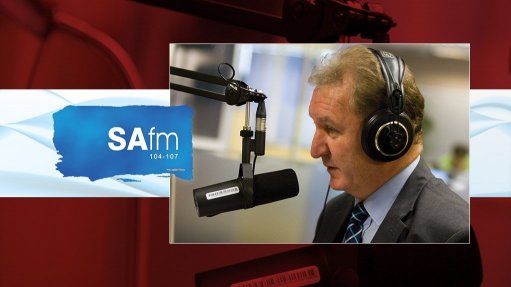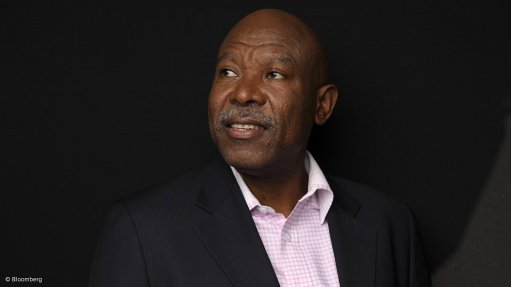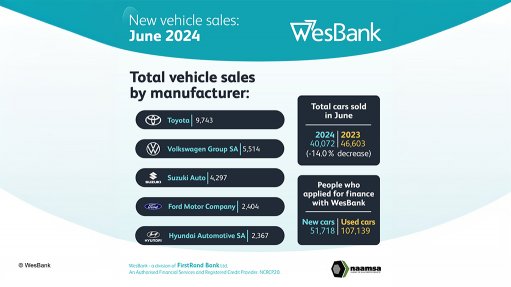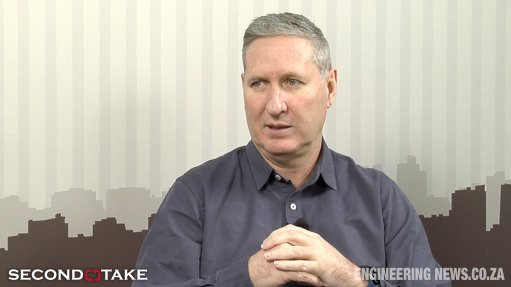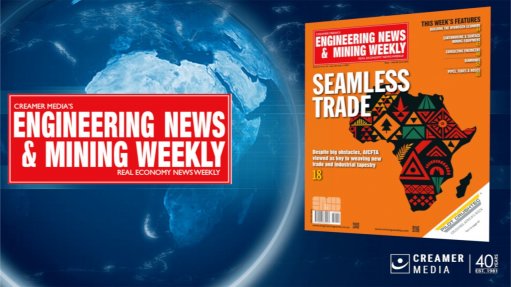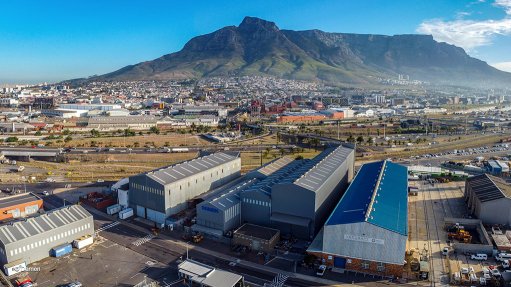Reserve Bank concern about decline of public markets a welcome development – Miller

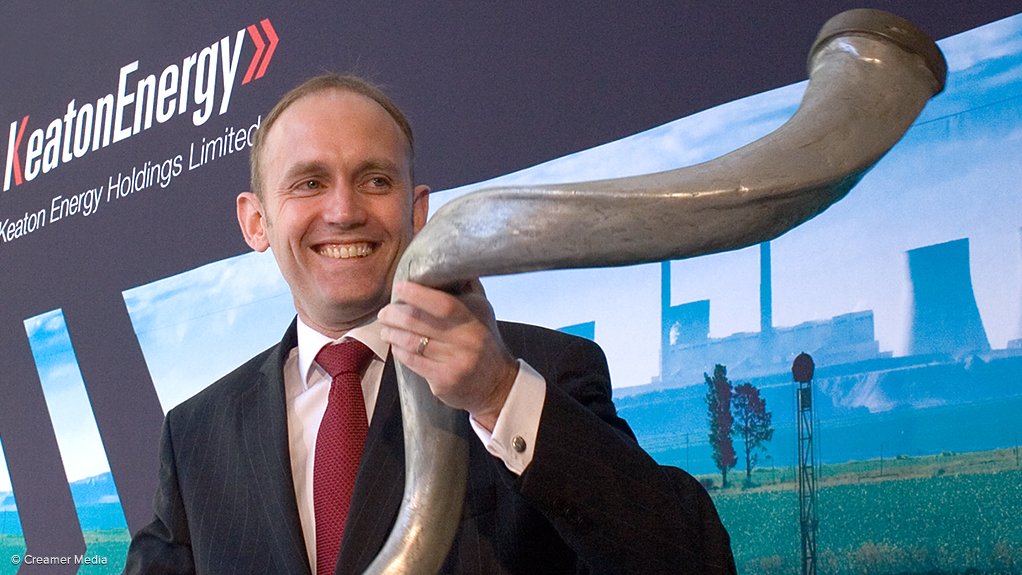
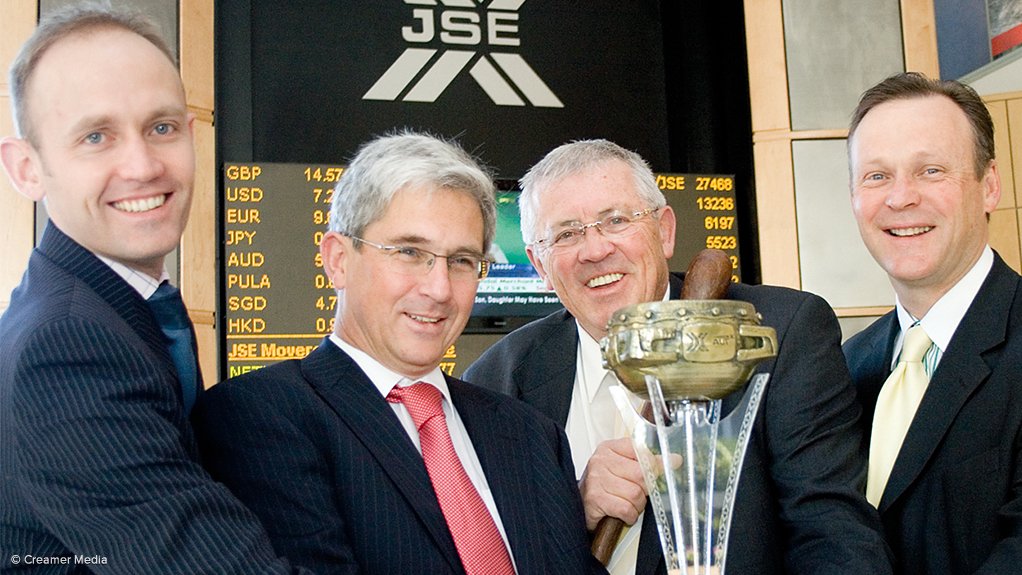
AmaranthCX director Paul Miller interviewed by Mining Weekly's Martin Creamer. Video: Darlene Creamer.
Flashback: Paul Miller's listing of Keaton on the JSE.
Photo by Creamer Media
Flashback: From left Paul Miller, Mark Parker, John Park and Dean Cunningham at Keaton listing.
Photo by Creamer Media
The concern that South Africa’s Reserve Bank expressed earlier this month on the state of this country’s public markets is seen as a welcome development by AmaranthCX director and public market promoter Paul Miller.
Everything the Johannesburg Stock Exchange (JSE) has done has not been enough to change the downward trajectory.
Last year was the worst year on record for new JSE listings and primary capital raisings, but this is not seen as a problem by the National Treasury and the Financial Services Conduct Authority (FSCA).
“The number of public companies or listed companies is declining year after year after year, and yet we get no policy response at all,” Miller pointed out in a Zoom interview with Engineering News & Mining Weekly on what can be done to grow South Africa’s public market investor base and attract more listings to the JSE.
“Public markets serve a social good. They give us price discovery, they provide pension funds with somewhere to put the money. If we allow everything to go private, we are also allowing everything to go dark. So, we mustn’t give up on public markets. They’re too important.
“In every other major financial market, the public market itself is recognised as being a competitive edge for a country. Countries with good public markets recognise that this is how you compete as an economy against other economies, and that you need to constantly improve the competitiveness of your public market. You need to be looking at the structure, form, substance, regulation of that public market all the time,” Miller noted.
More than 60% of the gross market capitalisation of the JSE is now made up by secondary listed companies that are served by financial sectors elsewhere in the world.
“Nobody thinks that this is a problem. So, that’s the first step we need to get to and that’s where the breakthrough has been the fact that the Reserve Bank has finally started publishing some information and announcing in their review of last week that they are doing further research and further work to better understand why our public market has become so shallow.
“To be fair, they tend to concentrate on the debt market rather than the equities market, but they did include the changing structure of our equity markets in their concern. If the JSE can’t get it right to get attention on this problem and get any action taken, if the National Treasury is entirely passive, if the FSCA says there’s no problem here, at least the Reserve Bank might be able to pay some attention, spend some money, do some research and come up with some solutions for this problem.
“I think the JSE has done a lot. I don’t think they’ve been able to engage in a meaningful way with the policymakers,” said Miller.
Engineering News & Mining Weekly: To what extent could a well-supported South African public market system create the inclusive economic growth that South Africa so desperately needs?
Miller: That’s the strange thing. To some extent, our public markets in South Africa are way more developed than we are as a country. We’ve got the fortieth largest economy in the world, but we’ve got the twentieth largest public market, so it’s a superpower. It’s something that we do much better, on a relative basis, than a lot of our competing countries, and that’s fantastic. But the idea that we can just neglect it is astonishing. We’ve got this services economy that’s built up around the financial services. It employs lots of people. It’s growing ahead of the rest of the economy. At its heart is the public market, and yet we’re allowing it to wither. As we’ve seen, our logistics infrastructure, our power infrastructure, all these things have been allowed to wither. Yet, the public markets more generally, which are fundamentally a private-sector initiative, have not been able to address these issues, and that’s disappointing.
When it comes to mining exploration, should a cadastre system that provides efficient administration remove the excuse of the National Treasury to refrain from introducing tax incentives like those that stimulate exploration in competing mining jurisdictions?
The National Treasury is pretty explicit on this issue. They’re saying they’re not going to pick industries to benefit from tax incentives and I’ve got some sympathy for the point of view, the idea that bureaucrats should decide which industry deserves help and which doesn’t, because if you are a farmer or someone in the energy sector you say, why can’t we have something? However, there is an existential crisis developing in our mining industry, in that it takes 10 to 20 years from discovery to development of a new mine, and in 10 to 20 years a lot of our current mines are going to be at the end of their lives. So, we owe it to the future to encourage more exploration today. One of the instruments that can be used is a tax incentive for exploration, but there are lots of others, too. We could invest in our regional geophysical surveys and make that data public. We could simply improve the administration of our prospecting rights beyond just the cadastre. I don’t think a cadastre is a silver bullet on its own. I don’t think a tax incentive for exploration would be a silver bullet on its own. It’s a combination of different factors to encourage exploration. What I would really like is for the National Treasury to appreciate that they discriminate against direct investors in the stock exchange, and we are not asking for a tax incentive. We’re asking for equal treatment between institutional investors and direct investors in the stock exchange in order to encourage retail investors to participate directly. That’s not a tax incentive. That’s just introducing fairness into the public markets, which we don’t currently have.
Following last month’s AGM of the JSE, are any new steps being taken within our public market system to stimulate more retail investor activity on the JSE?
I’m afraid I don’t see much happening. There is a rewriting of the JSE listings requirements, which is very welcome. This includes a more graduated regulatory regime for different sized companies. Smaller companies will have lesser requirements and as you proceed up the index to the very large companies, they will have the highest level of regulatory requirements, which I think is a very welcome move. But in terms of retail participation, we’ve not seen any material changes, and I think that’s not really the remit of the JSE itself. It’s the fact that our policymakers at National Treasury are very passive on this issue, and don’t seem to think there’s a problem.
Why is the attraction of small and medium- sized companies to the JSE important for the JSE?
There are two things we’re talking about here, and perhaps they’re two sides of the same coin. In order to have small and medium companies come to the JSE, they’ve got to be confident that firstly, they’ll get a good rating on their share price, but secondly, they’ll be able to raise capital. Then on the other side, in order for smaller companies to raise capital, they need a very much more diverse investor base, which includes retail and other non-institutional investors. Now, you need both, and they’re kind of mutually reinforcing.
Comments
Press Office
Announcements
What's On
Subscribe to improve your user experience...
Option 1 (equivalent of R125 a month):
Receive a weekly copy of Creamer Media's Engineering News & Mining Weekly magazine
(print copy for those in South Africa and e-magazine for those outside of South Africa)
Receive daily email newsletters
Access to full search results
Access archive of magazine back copies
Access to Projects in Progress
Access to ONE Research Report of your choice in PDF format
Option 2 (equivalent of R375 a month):
All benefits from Option 1
PLUS
Access to Creamer Media's Research Channel Africa for ALL Research Reports, in PDF format, on various industrial and mining sectors
including Electricity; Water; Energy Transition; Hydrogen; Roads, Rail and Ports; Coal; Gold; Platinum; Battery Metals; etc.
Already a subscriber?
Forgotten your password?
Receive weekly copy of Creamer Media's Engineering News & Mining Weekly magazine (print copy for those in South Africa and e-magazine for those outside of South Africa)
➕
Recieve daily email newsletters
➕
Access to full search results
➕
Access archive of magazine back copies
➕
Access to Projects in Progress
➕
Access to ONE Research Report of your choice in PDF format
RESEARCH CHANNEL AFRICA
R4500 (equivalent of R375 a month)
SUBSCRIBEAll benefits from Option 1
➕
Access to Creamer Media's Research Channel Africa for ALL Research Reports on various industrial and mining sectors, in PDF format, including on:
Electricity
➕
Water
➕
Energy Transition
➕
Hydrogen
➕
Roads, Rail and Ports
➕
Coal
➕
Gold
➕
Platinum
➕
Battery Metals
➕
etc.
Receive all benefits from Option 1 or Option 2 delivered to numerous people at your company
➕
Multiple User names and Passwords for simultaneous log-ins
➕
Intranet integration access to all in your organisation












